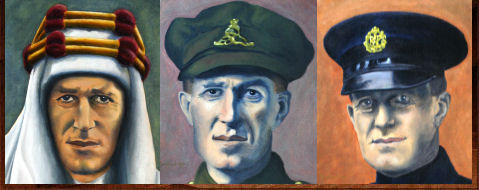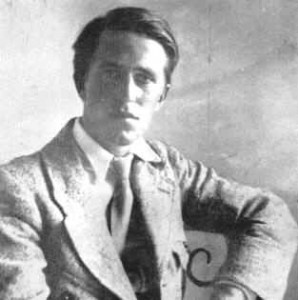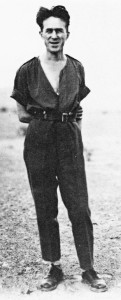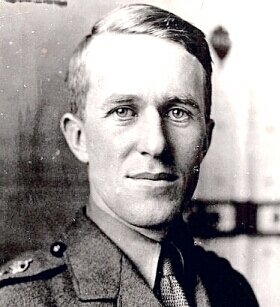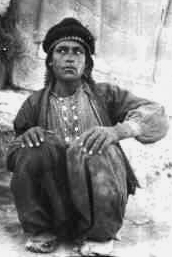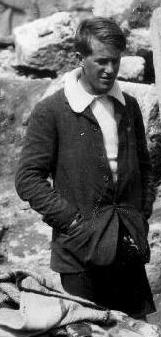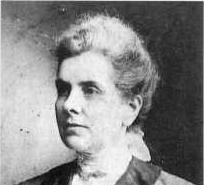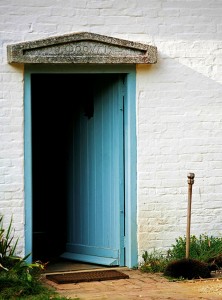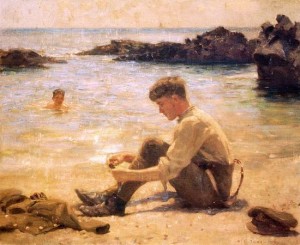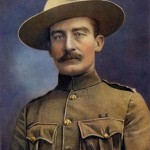Did TE Lawrence Have a Miserable or a Happy Childhood?
In TE’s family there is disagreement about the quality of his childhood. On the one hand we have his mother and oldest brother who claim a harmonious and happy childhood for him. And on the other, there is TE himself who speaks of a “miserable” childhood, and his youngest brother who speaks of a childhood which created an unbalance in TE’s character “even worse than the war”.
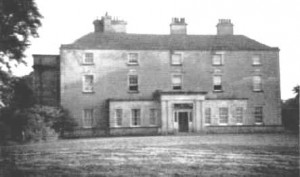 THE GENTLEMAN AND THE GOVERNESS
THE GENTLEMAN AND THE GOVERNESS
Sir Thomas Chapman (1846-1919) was an English landowner in Delvin, Ireland, who belonged to a family of considerable wealth. He writes the following on his deathbed. “When I first met your Mother, I was already married. An unhappy marriage without love on either side – tho’ I had four young daughters. Yr mother & I unfortunately fell in love with each other & when the exposé came, thought only of getting away & hiding ourselves.”(*1) The woman for whom he had fallen head over heels, was the governess of his daughters, Sarah Junner (1861-1959). She became his mistress, and when pregnant left the household to live in Dublin, giving birth to Robert (Bob) in 1885.
What followed was rather unexpected and untypical both for a master-servant relationship and for that time. When Thomas and Sarah were discovered, they bravely chose to 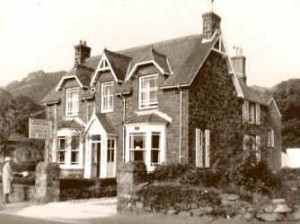 follow the difficult route by eloping. As a result, Thomas abandoned his estate, his money, his aristocratic life, and his prospects as a baronet. The couple were unable to marry, since Lady Chapman refused a divorce on religious grounds. Consequently, they lived “in sin”, a condition which was condemned strongly in Victorian Britain. What made their position even worse, was the fact that they had broken down class barriers too. “You can imagine or try to imagine how yr Mother & I have suffered all these years, not knowing what day we might be recognized by someone and our sad history published far and wide.”
follow the difficult route by eloping. As a result, Thomas abandoned his estate, his money, his aristocratic life, and his prospects as a baronet. The couple were unable to marry, since Lady Chapman refused a divorce on religious grounds. Consequently, they lived “in sin”, a condition which was condemned strongly in Victorian Britain. What made their position even worse, was the fact that they had broken down class barriers too. “You can imagine or try to imagine how yr Mother & I have suffered all these years, not knowing what day we might be recognized by someone and our sad history published far and wide.”
Thomas and Sarah tried to hide their situation by taking the surname “Lawrence”, and by behaving to the world as if they were married. For the first eleven years, the family became wanderers, moving about restlessly, afraid of being found out. 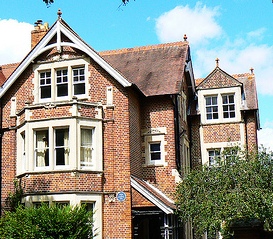 From Dublin they went to Tremadoc (Wales), where Thomas Edward (TE) was born (1888). Then followed Kirkcudbright (Scotland) and a third son William (1889), Dinard in Brittany (France), a short period at St Helier (Jersey) for the birth of Frank (1893), and the New Forest (near Beaulieu) in Hampshire. Finally they settled in Oxford in 1896 for the education of their children, where Arnold became the last son to be born (1900). “I can say nothing more, except that there never was a truer saying than “the ways of transgressors are hard”. Take warning from the terrible anxieties & sad thoughts endured by both yr Mother and me for now over thirty years!”
From Dublin they went to Tremadoc (Wales), where Thomas Edward (TE) was born (1888). Then followed Kirkcudbright (Scotland) and a third son William (1889), Dinard in Brittany (France), a short period at St Helier (Jersey) for the birth of Frank (1893), and the New Forest (near Beaulieu) in Hampshire. Finally they settled in Oxford in 1896 for the education of their children, where Arnold became the last son to be born (1900). “I can say nothing more, except that there never was a truer saying than “the ways of transgressors are hard”. Take warning from the terrible anxieties & sad thoughts endured by both yr Mother and me for now over thirty years!”
GOD HATES THE SIN, BUT LOVES THE SINNER
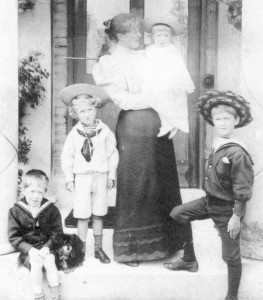 Taking Thomas from his wife, eloping, bearing eight illegitimate children and raising five (*2), and living with a man who was not legally her husband and far above her in class, must have been extremely difficult for a woman who was a “child of sin” herself. Sarah felt tremendous guilt, and the weight of sin was heavy upon her. However, her religious beliefs, and in particular the influence of Canon Christopher (1820 – 1913), gave her spiritual comfort. He was one of the leaders of the Evangelical Church, a fundamentalist movement which advocated a clear assertion of Christian principles and a literal interpretation of the Bible. It was concerned less with high ritual and more with personal redemption. Essential in Evangelical preaching were the five R’s: Ruin – Redemption – Regeneration – Righteousness – Responsibility. Canon Christopher inspired people with his “message of love” and convinced Thomas and Sarah, who met him in 1895 when he preached at Ryde (on the Isle of Wight), that they were not beyond the hope of divine forgiveness. They were told that “God Hates the Sin, but Loves the Sinner”, especially when that sinner showed repentance and bettered himself. As a young man in his twenties, Canon Christopher had himself been converted while instructing native boys in India.
Taking Thomas from his wife, eloping, bearing eight illegitimate children and raising five (*2), and living with a man who was not legally her husband and far above her in class, must have been extremely difficult for a woman who was a “child of sin” herself. Sarah felt tremendous guilt, and the weight of sin was heavy upon her. However, her religious beliefs, and in particular the influence of Canon Christopher (1820 – 1913), gave her spiritual comfort. He was one of the leaders of the Evangelical Church, a fundamentalist movement which advocated a clear assertion of Christian principles and a literal interpretation of the Bible. It was concerned less with high ritual and more with personal redemption. Essential in Evangelical preaching were the five R’s: Ruin – Redemption – Regeneration – Righteousness – Responsibility. Canon Christopher inspired people with his “message of love” and convinced Thomas and Sarah, who met him in 1895 when he preached at Ryde (on the Isle of Wight), that they were not beyond the hope of divine forgiveness. They were told that “God Hates the Sin, but Loves the Sinner”, especially when that sinner showed repentance and bettered himself. As a young man in his twenties, Canon Christopher had himself been converted while instructing native boys in India. 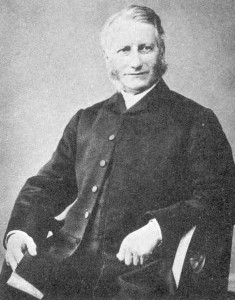 And as Vice President of the Church Missionary Society he was now on the lookout for young men, saved for Christ, who would become teachers, clergymen and missionaries and disseminate the gospel. This appealed to Sarah, who needed her family to contribute to her penitence vicariously, devoting their lives to God and Christianity. (*3) The first step was moving to Oxford, where Canon Christopher was Rector of St Aldate’s Church.
And as Vice President of the Church Missionary Society he was now on the lookout for young men, saved for Christ, who would become teachers, clergymen and missionaries and disseminate the gospel. This appealed to Sarah, who needed her family to contribute to her penitence vicariously, devoting their lives to God and Christianity. (*3) The first step was moving to Oxford, where Canon Christopher was Rector of St Aldate’s Church.
DISCIPLINE
Raising her children to be children of God demanded an iron will from Sarah, and meant enforcing strict discipline (*4) from both family and servants in the form of obedience, reliability, punctuality, neatness and cleanliness. She used her authority in particular to protect her children from the dangers of the wicked world outside. Evangelical Christians believed in the innate sinfulness of the individual. Children were not born innocent, but inherited the sins of their parents. First and foremost she had to conquer the threat of alcoholism in the family, since both sides had their share of it. She sharply warned her children against its evils and helped Thomas to conquer his addiction and to become a teetotaller. But even more threatening were lustfulness and unchastity. 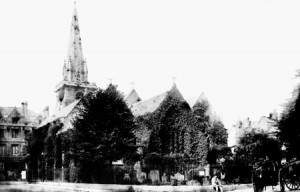 Medical theory at that time supported the Evangelical idea of innate sinfulness, stating that children “of sin”, born of unchaste parents, would develop premature sensuality. Children and adolescents with such a background had to be prevented at all costs from giving themselves over to libidinous indulgence. Masturbation in particular, was considered by both medical and religious authorities, to be an absolute horror, an uncleanliness, a filthiness forbidden by God, an unmanliness despised by men. Boys and their parents were warned with gruesome descriptions of the dreadful consequences which attended anyone who practised self-abuse. Fearful of her children developing in the wrong direction, Sarah became vigilant in regard to the chastity of her sons. She felt, for example, that women were natural troublemakers, who would eventually steal her boys from her, and therefore she did not tolerate other women in the house, except for servants.
Medical theory at that time supported the Evangelical idea of innate sinfulness, stating that children “of sin”, born of unchaste parents, would develop premature sensuality. Children and adolescents with such a background had to be prevented at all costs from giving themselves over to libidinous indulgence. Masturbation in particular, was considered by both medical and religious authorities, to be an absolute horror, an uncleanliness, a filthiness forbidden by God, an unmanliness despised by men. Boys and their parents were warned with gruesome descriptions of the dreadful consequences which attended anyone who practised self-abuse. Fearful of her children developing in the wrong direction, Sarah became vigilant in regard to the chastity of her sons. She felt, for example, that women were natural troublemakers, who would eventually steal her boys from her, and therefore she did not tolerate other women in the house, except for servants.
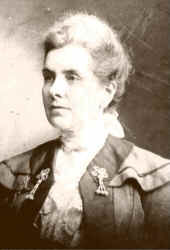 GREAT EXPECTATIONS
GREAT EXPECTATIONS
TE was treated more critically and strictly by his mother, because she expected him to do something special with his life. For him there was an ideal standard. Being a good boy was not enough: he had to be immaculate. This meant he was required to be diligent, enthusiastic, religious and church-going; clean of mind and body, pure in thought and deed; to be strong and courageous, as well as active and full of life; to be good and kind as well as careful and helpful to others; to be orderly, punctual, honest and open; and finally, to be respectful and obedient to his elders, and to tell his parents everything that he was doing or intended to do. According to Sarah, her education of TE was a great success. “He took the greatest pains over everything he did, and was always full of enthusiasm about all he was doing in work or play, and was always so good and kind to everyone.” (*5)
A PICTURE-PERFECT FAMILY
The reputation of her family was everything to Sarah. She needed to prove to the world (and probably to herself) that against all odds she had raised her children successfully. Unfortunately, this attitude led to a distinct colouring of information that is available on TE’s childhood, by both Sarah and her eldest son Bob.(*6) 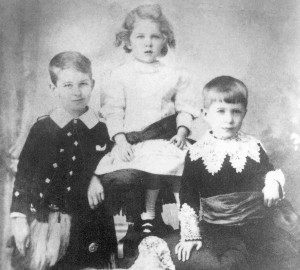 According to Bob, the period before the war “was really the happiest of Ned’s whole life.”(*7) It consisted of complete harmony, “We had a very happy childhood which was never marred by a single quarrel between any of us.”(*8) Sarah could not agree more, and considered people who still dared to have a different opinion to be totally in the wrong. “(TE) never did any of the stupid things attributed to him – they are pure inventions.”(*9) Any dirty linen that existed should certainly not be shared with the public. It made her complain to TE about the things he wrote about the war.(*10) And after his death she heavily influenced her surviving sons, Bob and Arnold, when they acted as editors of books about her Ned. For example, when Arnold was working on TE Lawrence by his Friends (1937), his mother “expressed the utmost horror & incredulity about the notion of (TE) bribing the Turks.(…) She finally said she would never forgive me if I printed the passage. (….) It seemed to me in the end that I had better do as she wished: she is 75 & I did not feel that it was any use going on with the argument for more than 2 spells of 3 hours!”(*11)
According to Bob, the period before the war “was really the happiest of Ned’s whole life.”(*7) It consisted of complete harmony, “We had a very happy childhood which was never marred by a single quarrel between any of us.”(*8) Sarah could not agree more, and considered people who still dared to have a different opinion to be totally in the wrong. “(TE) never did any of the stupid things attributed to him – they are pure inventions.”(*9) Any dirty linen that existed should certainly not be shared with the public. It made her complain to TE about the things he wrote about the war.(*10) And after his death she heavily influenced her surviving sons, Bob and Arnold, when they acted as editors of books about her Ned. For example, when Arnold was working on TE Lawrence by his Friends (1937), his mother “expressed the utmost horror & incredulity about the notion of (TE) bribing the Turks.(…) She finally said she would never forgive me if I printed the passage. (….) It seemed to me in the end that I had better do as she wished: she is 75 & I did not feel that it was any use going on with the argument for more than 2 spells of 3 hours!”(*11) 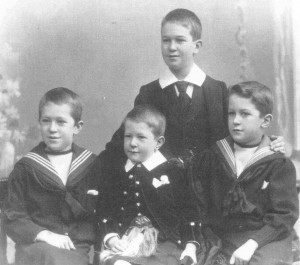 And during Bob’s work on Home Letters (1954), Sarah had him change the letters as she wanted, omitting passages which deviated from her education of TE. Arnold was vitriolic over this, and privately complained about his older brother’s shoddy and “Mum”-serving editing, which he said made him “squirm at every page”.(*12)
And during Bob’s work on Home Letters (1954), Sarah had him change the letters as she wanted, omitting passages which deviated from her education of TE. Arnold was vitriolic over this, and privately complained about his older brother’s shoddy and “Mum”-serving editing, which he said made him “squirm at every page”.(*12)
EVEN WORSE THAN THE WAR
TE’s youngest brother clearly had a different opinion about this picture-perfect childhood. Arnold told TE’s friend and first biographer Robert Graves, that “the strongest impression I have is that his life has been injured by his mother.”(*13) And to another friend of TE, Jim Ede, he was even more outspoken. “A childhood like his would create an unbalance in anyone’s mind. It brought about a very severe knack, even worse than the war.”(*14) It was during the war that TE experienced horrific warfare, from both the Arabs and Turks, and was tortured and raped. So what exactly happened to him during his childhood that could have been worse? And what part did his mother play in this, that “injured” him?
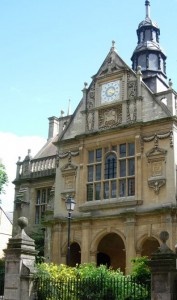 THE SCHOOL-FEAR
THE SCHOOL-FEAR
Moving to Oxford when he was eight years old, brought about a big change for TE. From a life which was rather free and protected in the woods of the New Forest, he was suddenly confronted with strict discipline, both in school and at home. In hindsight he “hated & contemned” his schooldays, which he considered “an irrelevant and time-wasting nuisance”(*15). “They drag those “boy” years out too much. In my case they were miserable sweated years of unwilling work; and when after them I suddenly went to (the University of) Oxford, the new freedom felt like Heaven. I don’t think men ever work as hard as boys are made to work (…) nor do I think the miseries of grown-up feelings are as bad as those of boys.”(*16) In The Mint (his book about his experiences in the RAF and the Tank Corps) he compares his school period with the military training he received, saying “there is the school-fear over me, that working against hazardously-suspended penalty which made my life from eight to eighteen miserable, and (the University of) Oxford after it so noble a freedom.”(*17)
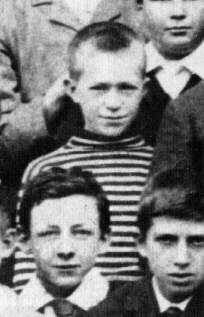 The term “school-fear” suggests that TE’s fear was related to school itself, and that the penalty he mentions might have come from his masters.(*18) However, there is no evidence of disciplinary action or punishments in school. From the stories we know of TE’s school days, nothing special stands out that could have created this fear. Although considered to be somewhat “eccentric”, he was not unpopular and had friends. Bullying may have occurred, as in every school, but it seems unlikely that he would have experienced it as a “penalty”, or that it would have lasted from eight to eighteen. There is, however, evidence of disciplinary action elsewhere.
The term “school-fear” suggests that TE’s fear was related to school itself, and that the penalty he mentions might have come from his masters.(*18) However, there is no evidence of disciplinary action or punishments in school. From the stories we know of TE’s school days, nothing special stands out that could have created this fear. Although considered to be somewhat “eccentric”, he was not unpopular and had friends. Bullying may have occurred, as in every school, but it seems unlikely that he would have experienced it as a “penalty”, or that it would have lasted from eight to eighteen. There is, however, evidence of disciplinary action elsewhere.
THE BATTLE OF WILLS
It was at home that a battle of wills developed between TE and his mother. A battle which would continue all his life. The first part took place from eight to eighteen, the years TE was a schoolboy, and in my opinion it is this battle which made his life during this period “miserable”.
The battle of wills started when TE was just a boy of eight. This is usually the age that a child starts to take his own place, when he collides with the people around him, becoming more unmanageable, rebellious and obstinate. Eight is the year of tension, almost as if puberty sets in, but as it turns out, it is only a finger-exercise for later. TE resisted the ideal standard his mother wanted to enforce, more than his brothers did, because he was hard-headed and strong-willed just like her.(*19) Because discipline in itself proved not enough to reach her goals, Sarah felt justified to break her son’s obstinate will, and make him into “an empty harp”, through which her will would blow.(*20) For this, she used every weapon available to her: circumcision, beatings, sedation, and psychological pressure.
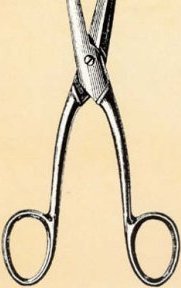 CIRCUMCISION
CIRCUMCISION
Circumcision was commonplace in England in the latter half of the 19th century and the early years of the 20th, notably among the upper and middle classes. There were mainly hygienic reasons for the practice, but what also played an important role was the belief that circumcision would discourage masturbation.(*21) The custom was to have the procedure done as early as possible in a boy’s life, usually at birth, but in TE’s case it took place in 1897, when he was nine. It is difficult to assess what psychological consequences this had for a boy, who was at that time trying to take his own place in life, forming his own identity. He may have considered circumcision a punishment for something he did wrong, as many children do when they try to make sense of something bad that is happening to them. Physically it must have been a painful experience, particularly for a boy who was (or became) terrified of pain. “Pain of the slightest had been my obsession and secret terror, from a boy.”(*22)
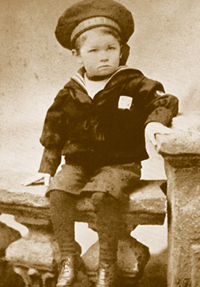 BEATINGS
BEATINGS
More pain was involved when TE was beaten frequently by his mother for misbehaviour and obstinacy. According to Arnold, it consisted of “severe whippings on the buttocks”, which “seemed to be given for the purpose of breaking TE’s will.”(*23) Beatings as a form of discipline were quite common in the upper and middle classes of Victorian Society. Teaching youthful sinners to become dutiful and virtuous was for their own good, and God’s will was quoted to justify it. “He that spares the rod hates his child; but he who loves him chastens him betimes.” (Proverbs 13:12) With this in mind, children were beaten for lack of obedience, dishonesty, forwardness, bad language, and too much self-will.
The pain involved was one thing, but what particularly frightened TE about the beatings, was the unexpectedness, the “hazardously-suspended penalty”. A child beaten for disciplinary reasons, may feel that he has some control over the beating by adapting himself to the wishes of the beater, and proactively catching signals and tuning into them with his behaviour (“I will be, what you want me to be!”).(*24) But when beatings take place with the purpose of breaking a child’s will, then he is beaten because of who he is instead of how he behaves; this makes the beatings unpredictable, and the child will never know for sure when he is safe or when he is not.
SEDATION
TE was not only beaten to break his will, he was also sedated with opiates, to make him quiet and obedient. “They dosed me sometimes, when I was a child, too weak to kick against them …”(*25) 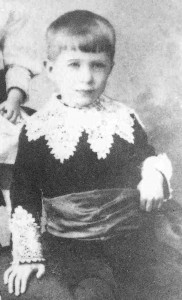 Again, this was not uncommon at that time. Sedating of infants took place throughout society, by working mothers, babyminders or harassed adults. They resorted to opiates, “Godfrey’s Cordial” being the most popular, to still the babble of children, on a vast, harmful and unprecedented scale.(*26) The horror of sedation is that it can break a person’s will completely, because he is unable to defend himself. This seems to be the one thing that TE feared most of all: powerlessness. The pain of the beatings, in combination with the unexpectedness of them, giving him no time to prepare, created for TE a situation similar to that of being sedated; unable to resist, he surrendered his will completely.
Again, this was not uncommon at that time. Sedating of infants took place throughout society, by working mothers, babyminders or harassed adults. They resorted to opiates, “Godfrey’s Cordial” being the most popular, to still the babble of children, on a vast, harmful and unprecedented scale.(*26) The horror of sedation is that it can break a person’s will completely, because he is unable to defend himself. This seems to be the one thing that TE feared most of all: powerlessness. The pain of the beatings, in combination with the unexpectedness of them, giving him no time to prepare, created for TE a situation similar to that of being sedated; unable to resist, he surrendered his will completely.
A FREEZING RESPONSE
There is evidence which points in the direction of TE suffering from a freezing response, an instinctive surrender in a frightening situation. Freezing, and the dissociation which is part of it, is an adequate response in abnormal and overpowering circumstances, but has a tendency to repeat itself when a person is under severe stress, feeling powerless or paralysed from fear, and then dissociative complaints are its consequence. TE experienced freezing during the Arab Revolt, being “disbodied, unconscious of flesh or feeling”(*27), and particularly during the beating and rape in Deraa (1917), when “no longer actor, but spectator, (I) thought not to care how my body jerked and squealed (in its sufferings).”(*28) Finally he experienced it during the self-organised and ritualized beatings in the 1920’s and 1930’s.(*29) As a consequence of freezing, “he could not monitor his own reactions”(*30), which frightened him. Trying to regain control, he arranged for a person to witness the proceedings, and afterwards to describe to him what he had witnessed in regard to his behaviour and responses during the beatings and after, since he himself had not been aware of them.
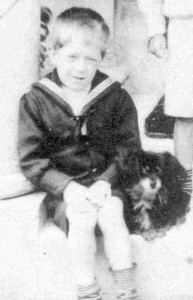 It is likely that TE’s freezing response started in his childhood, as a reaction to the beatings by his mother, and developed into a pattern in which it became his natural reaction towards physical threat. Now this may sound exaggerated and speculative to you, and you may wonder why beatings in childhood would lead to such disproportionate reactions. But it is a fact that every person reacts differently to things that happen to them. What for one is something harmless, can be intensely frightening for another. Beatings which are unpredictable (“hazardously-suspended”), can create an overwhelming sense of helplessness and powerlessness in a child. When defence (“fight” or “flight”) is not an option, there is only one way left to avert the painful reality, which is by freezing. A child who is afraid of pain, and therefore more vulnerable, is more likely to react in this way. Since freezing is a natural, instinctive reaction, it just happens, and the child may feel he loses control because he automatically surrenders. This bothered TE most of all as a child. He froze when confronted with a beating mother, and although freezing lessened the pain, it didn’t lessen his powerlessness.
It is likely that TE’s freezing response started in his childhood, as a reaction to the beatings by his mother, and developed into a pattern in which it became his natural reaction towards physical threat. Now this may sound exaggerated and speculative to you, and you may wonder why beatings in childhood would lead to such disproportionate reactions. But it is a fact that every person reacts differently to things that happen to them. What for one is something harmless, can be intensely frightening for another. Beatings which are unpredictable (“hazardously-suspended”), can create an overwhelming sense of helplessness and powerlessness in a child. When defence (“fight” or “flight”) is not an option, there is only one way left to avert the painful reality, which is by freezing. A child who is afraid of pain, and therefore more vulnerable, is more likely to react in this way. Since freezing is a natural, instinctive reaction, it just happens, and the child may feel he loses control because he automatically surrenders. This bothered TE most of all as a child. He froze when confronted with a beating mother, and although freezing lessened the pain, it didn’t lessen his powerlessness.
The heavenly freedom which TE finally found when he was eighteen and started his studies at the University of Oxford, was only achieved after a fierce struggle within himself. By “constant training in carelessness”(*31) he learned to deal with his fear of pain and to control his freezing response. He experimented with tests of physical and mental endurance, making cycle rides and long walks in very severe circumstances, spending extended periods without food or sleep. By severe discipline, self-denial, exhaustion and suffering, he stretched the limits of his physical capabilities, even becoming “a pocket Hercules”.(*32) In the end, however, he lost his newly acquired self-control and self-confidence again, under the immense pressure of the war and its aftermath, and particularly because of the torture and rape in Deraa in 1917.(*33)
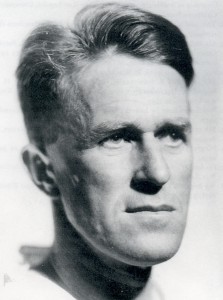 THE CITADEL OF INTEGRITY
THE CITADEL OF INTEGRITY
“You instance my night in Deraa. Well; I’m always afraid of being hurt; and to me, while I live, the force of that night will lie in the agony which broke me and made me surrender. (…) For fear of being hurt, or rather to earn five minutes respite from a pain which drove me mad, I gave away the only possession we are born into the world with – our bodily integrity. It’s an unforgivable matter, an irrevocable position …”(*34) It was during the war that TE’s “citadel of … integrity had been irrevocably lost.”(*35) But it seems his integrity of self, both physical and mental, had been violated before, during the battle of wills with his mother in his childhood. It was she who, in the words of Arnold, “injured” her son, creating “an unbalance” in TE’s mind, and causing “a very severe knack, even worse than the war”.
TE had a strong will, and wanted to be free to live his own life. He hated it when others tried to rule him. It was noticed by his schoolmaster: “He was self-reliant and one could feel in him an instinctive recoil when he was pressed into a way that he did not feel inclined to go.”(*36) But because of the psychological and physical pressure his mother exerted on him, it was a constant struggle to have a life of his own, and to develop his own identity. He still complains about it, later in his life, in terms reminiscent of the rape. “I think I’m afraid of letting her get, ever so little, inside the circle of my integrity; and she is always hammering and sapping to come in.”(*37). 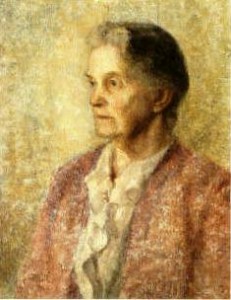 TE was constantly expected to behave according to an ideal standard and it was mother’s will that determined how he should behave, what he should think and feel and what he should believe, and there was no hiding from her.(*38) That this had clearly injured him can be seen, for example, from his reaction when he was suddenly confronted with his old travelling bath, in which his mother used to bathe him as a child. He showed a “violent revulsion to recall such physical dependency”.(*39) Sarah would never change her ways with him and their battle of wills would continue all his life, as we can conclude from a remark of TE when he was 39: “I have a terror of her knowing anything about my feelings, or convictions, or way of life. If she knew they would be damaged, violated, no longer mine. You see, she would not hesitate to understand them; and I do not understand them, and do not want to.”(*40)
TE was constantly expected to behave according to an ideal standard and it was mother’s will that determined how he should behave, what he should think and feel and what he should believe, and there was no hiding from her.(*38) That this had clearly injured him can be seen, for example, from his reaction when he was suddenly confronted with his old travelling bath, in which his mother used to bathe him as a child. He showed a “violent revulsion to recall such physical dependency”.(*39) Sarah would never change her ways with him and their battle of wills would continue all his life, as we can conclude from a remark of TE when he was 39: “I have a terror of her knowing anything about my feelings, or convictions, or way of life. If she knew they would be damaged, violated, no longer mine. You see, she would not hesitate to understand them; and I do not understand them, and do not want to.”(*40)
ILLEGITIMACY
At the same time that the child TE was forced to be open about himself, he found out about the illegitimate situation of his parents and their children. “They thought always that they were living in sin, and that we would some day find it out. Whereas I knew it before I was ten, and they never told me; till after my father’s death something I said showed Mother that I knew, and didn’t care a straw.”(*41) 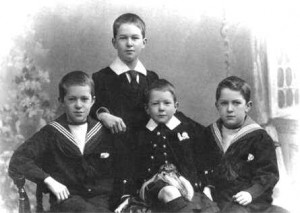 As an adult TE may have been indifferent about his illegitimacy, but to a child of ten, who is still very much dependent upon his parents, such a discovery must come as a great shock, particularly if that child is already in an unpredictable situation and is forced to bring his will into complete conformity with that of his mother. Such a child has great difficulty in feeling safe. And then, on top of it, he finds out that his mother, who advocates high ideals and standards, and forces him to be open about his life, is herself living “in sin”, and thus a hypocrite. And his father, the person he admires, is not telling the truth either.(*42) Now how is he able to trust his parents, when he has been lied to all this time? According to TE’s brother Arnold, “There was a strong sense of puritanism in the family, a spirit of sin, unnaturalness. Hush hush was great, many subjects were taboo which to the child’s mind are not. It perplexed the children, leading to doubts, and ultimately to a lack of confidence.”(*43)
As an adult TE may have been indifferent about his illegitimacy, but to a child of ten, who is still very much dependent upon his parents, such a discovery must come as a great shock, particularly if that child is already in an unpredictable situation and is forced to bring his will into complete conformity with that of his mother. Such a child has great difficulty in feeling safe. And then, on top of it, he finds out that his mother, who advocates high ideals and standards, and forces him to be open about his life, is herself living “in sin”, and thus a hypocrite. And his father, the person he admires, is not telling the truth either.(*42) Now how is he able to trust his parents, when he has been lied to all this time? According to TE’s brother Arnold, “There was a strong sense of puritanism in the family, a spirit of sin, unnaturalness. Hush hush was great, many subjects were taboo which to the child’s mind are not. It perplexed the children, leading to doubts, and ultimately to a lack of confidence.”(*43)
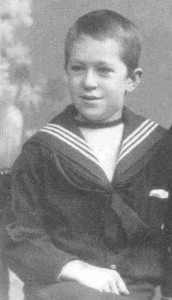 STRUGGLING TO BECOME AN IMMACULATE CHILD
STRUGGLING TO BECOME AN IMMACULATE CHILD
Confusion and insecurity are the consequence of secrecy and hypocrisy around a child. It is in a child’s nature to try to make sense of the things that are happening around him, particularly for a curious and investigative child like TE. Living up to his mother’s ideal of perfection, he became very sensitive to her wishes. Only by acting in a manner that was up to her expectations, could he keep at bay that horrifying spectre of a mother’s heart “grown cold with disappointment”.(*44) Trying to be an immaculate child, however, meant walking on his tip-toes constantly. It made him insecure of himself, being “just not good enough”, because he was never able to reach that ideal standard she demanded of him, and that he, as a consequence, demanded of himself. Mother’s perfectionism was eventually replaced by a strong inner perfectionist (the part that sets the targets), an inner critic (the part that criticizes him if he does not behave as expected) and particularly a destructive inner judge (the part that makes strong judgments about the things he does), the latter especially leading TE to be depreciative of his own achievements, and eventually driving him into depression. “One of the sorest things in life is to come to realise that one is just not good enough. Better perhaps than some, than many, almost – but I do not care for relatives, for matching myself against my kind. There is an ideal standard somewhere and only that matters; and I cannot find it. Hence this aimlessness.”(*45) In fact, later in his life, his mother did not need “hammering and sapping to come in”, since she had created her way in already when he was a child. Her ideals were stamped upon him and led him to reject everything he did as being unworthy and ultimately to reject his own self-created identity as being false. “The eagerness to overhear and oversee myself was my assault upon my own inviolate citadel.”(*46)
What played a strong role in the development of TE’s depression is the fact that a child who is being raised in such a repressive environment usually blames himself for what is happening to him. This is a well-known survival technique of children with difficult parents and painful childhoods. 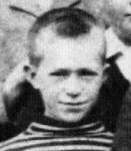 The child will not doubt his parents, but rather doubt or even blame himself and his own behaviour. Feelings of anger or even aggression against the people upon whom he is dependent, are thus kept away, as are feelings of fear and pain. The child focuses himself on activity, on things he could do instead of the things he could not, and on the good things that happen to him. He just wants to lead a normal life, just like the children around him, without chaos or confusion. Therefore he subconsciously constructs an explanation for his fate that absolves his parents of all blame and responsibility. He keeps away all painful things, like circumcision, beatings and sedation, from his conscious mind, as if they did not really happen, or when they do, they are minimized, rationalized, and excused. Thoughts that lead to doubts are reasoned away. It gives the child some sense of control in a situation in which he is, in fact, totally powerless. By blaming himself, he holds onto the illusion of being loved for who he is, instead of how he behaves.
The child will not doubt his parents, but rather doubt or even blame himself and his own behaviour. Feelings of anger or even aggression against the people upon whom he is dependent, are thus kept away, as are feelings of fear and pain. The child focuses himself on activity, on things he could do instead of the things he could not, and on the good things that happen to him. He just wants to lead a normal life, just like the children around him, without chaos or confusion. Therefore he subconsciously constructs an explanation for his fate that absolves his parents of all blame and responsibility. He keeps away all painful things, like circumcision, beatings and sedation, from his conscious mind, as if they did not really happen, or when they do, they are minimized, rationalized, and excused. Thoughts that lead to doubts are reasoned away. It gives the child some sense of control in a situation in which he is, in fact, totally powerless. By blaming himself, he holds onto the illusion of being loved for who he is, instead of how he behaves.
CHILD ABUSE
Usually battles of wills are won by parents and lost by children, as it was in this case. From eight to eighteen TE was not able to break through his powerlessness, to build up his own citadel, defend his integrity, and be safe. But fortunately for him, after “miserable sweated years of unwilling work”, he eventually found “the new freedom (which) felt like heaven”, at the University of Oxford.(*47)
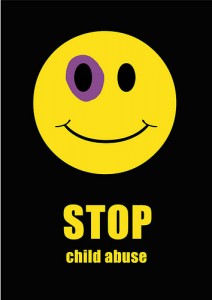 It is clear that TE was harmed by his childhood. As his brother Arnold said, “his life, has been injured by his mother.” It created “an unbalance in (his) mind (…) a very severe knack, even worse than the war.” Nowadays physical and psychological mistreatment of a child in the form of physical abuse, emotional abuse and neglect is called “child abuse”. It is defined as being an avoidable and harmful way of treating a child, injuring his welfare and threatening his development. What happened to TE in his childhood – being beaten, sedated, circumcised and being under severe psychological pressure to become an immaculate child – would definitely fit this definition. However, in 19th century terms, the behaviour of his mother and her treatment of her son were nothing special. Her raising a wilful child in this way would definitely have been supported by both religious and school authorities. Therefore it would be an anachronism to label it with the contemporary term, “child abuse”.(*48)
It is clear that TE was harmed by his childhood. As his brother Arnold said, “his life, has been injured by his mother.” It created “an unbalance in (his) mind (…) a very severe knack, even worse than the war.” Nowadays physical and psychological mistreatment of a child in the form of physical abuse, emotional abuse and neglect is called “child abuse”. It is defined as being an avoidable and harmful way of treating a child, injuring his welfare and threatening his development. What happened to TE in his childhood – being beaten, sedated, circumcised and being under severe psychological pressure to become an immaculate child – would definitely fit this definition. However, in 19th century terms, the behaviour of his mother and her treatment of her son were nothing special. Her raising a wilful child in this way would definitely have been supported by both religious and school authorities. Therefore it would be an anachronism to label it with the contemporary term, “child abuse”.(*48)
RETROSPECT
You may regard my description of TE’s childhood thus far, even without the label “child abuse”, as being strongly speculative, exaggerated and judgemental, since there is only proof of a few beatings, nothing more or less. You may regard the way his mother treated him, as something normal, or harmless, and maybe even necessary because TE was such a strong-willed boy.(*49) 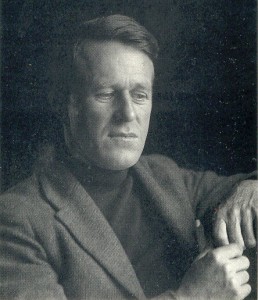 And you may think that TE’s using the word “miserable” to describe his childhood, is both unreasonable and unfair to his well-meaning parents (*50), particularly since he only considered it as such in retrospect. You are as entitled to your opinion, as I am to have mine.
And you may think that TE’s using the word “miserable” to describe his childhood, is both unreasonable and unfair to his well-meaning parents (*50), particularly since he only considered it as such in retrospect. You are as entitled to your opinion, as I am to have mine.
Hindsight is not unusual, because a child has nothing to compare his life and experiences with. He has no objective concept of what is normal and what is not. The only thing he knows about is his own experience. People around him may tell him that he has been very lucky to have such wonderful parents and that his behaviour strikes them as that of a happy child. How could he know that it might not be as it is supposed to be? Children who are living in an abusive situation, are masters at hiding their distress symptoms, and try to behave as normal as possible. It is only later in life, through contacts with others and through experiences, that a person is able to find out the reality of his childhood. Often this takes place when things in life go wrong, or when something shocking happens, and a person tries to make sense of the situation and the patterns that brought him there. In the case of TE this realization came to pass when he suffered from a trauma, caused by the circumstances of the war and by being tortured and raped. It is a fact that a traumatic experience often triggers the emotional reactions of an earlier trauma, particularly if that earlier experience has not been assimilated. This can lead to an extra-violent emotional reaction to the later trauma.(*51) TE was already under great stress from the Arab Revolt, his mental resistance severely weakened. This made him an easy victim in Deraa, and the effects of the trauma even worse, because it recalled all the earlier traumatic experiences of the war. The severity of his rape-trauma and the trouble he had assimilating it make the possibility of an earlier trauma in his childhood very likely. A glimpse of it can be seen, for example, in TE’s attitude towards his old home just after he returned from the war. A place like home would normally be a good place to recover, but for him, this proved not to be the case. “I can’t live at home: I don’t know why: the place makes me utterly intolerable.”(*52)
THE DIFFICULTY OF JUDGING FROM THE OUTSIDE
TE’s childhood was not all black or all white, and so there were both miserable and happy moments in it, as in that of everyone. But who are we to judge it and on what basis? Many people recognize themselves in TE, because they had a mother like his. 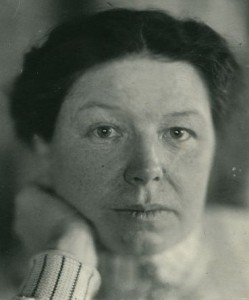 His friend Charlotte Shaw, and his biographers John Mack (*53) and Richard Aldington (*54), to name a few. But only a tiny minority of these people will regard themselves as “survivors” of child abuse, or even as having had a painful childhood. Most of them will just call it “a difficult mother”. Charlotte Shaw called her childhood “perfectly hellish” (*55), TE his “miserable”. Every person reacts differently to things that happen to them. Some are more sensitive or vulnerable than others. In my opinion, the quality of a childhood is not something which can be objectively measured by outsiders, but something subjectively judged by those who have lived and experienced it. So ultimately, it is not for me to decide if TE had either a miserable or a happy childhood. That is up to the child who lived that life, and the adult he became. TE called it “miserable”. His brother Arnold, who was closest to him, said that a childhood like his brother’s created an unbalance in TE’s character which was “even worse than the war”. It would be presumptuous of any outsider to contradict them.
His friend Charlotte Shaw, and his biographers John Mack (*53) and Richard Aldington (*54), to name a few. But only a tiny minority of these people will regard themselves as “survivors” of child abuse, or even as having had a painful childhood. Most of them will just call it “a difficult mother”. Charlotte Shaw called her childhood “perfectly hellish” (*55), TE his “miserable”. Every person reacts differently to things that happen to them. Some are more sensitive or vulnerable than others. In my opinion, the quality of a childhood is not something which can be objectively measured by outsiders, but something subjectively judged by those who have lived and experienced it. So ultimately, it is not for me to decide if TE had either a miserable or a happy childhood. That is up to the child who lived that life, and the adult he became. TE called it “miserable”. His brother Arnold, who was closest to him, said that a childhood like his brother’s created an unbalance in TE’s character which was “even worse than the war”. It would be presumptuous of any outsider to contradict them.
NOTES
*1 Letter by Thomas Chapman/Lawrence, no date, in: Harold Orlans The Ways Of Transgressors, Journal Of The T.E. Lawrence Society 1 (1996),p.20-21
*2 Two sons were born dead, and one lived for only a few hours.
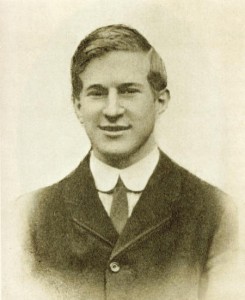 *3 Eventually William became a teacher of history at St Step-hen’s College in Delhi (1913/14). Frank organised summer camps and was a leader in the Church Lad’s Brigade, like his older brother TE, who also taught at Sunday School. Thomas, the father, became a member of the Church Committee at St Aldates. And Robert, her oldest, went to China as a medical missionary in 1921 where Sarah joined him in 1923. After unrest prompted them to get back to England in 1927, they returned to China in 1932, eventually fleeing from the Communists in 1935. Both Will and Frank died in action during the First World War, and TE and Arnold resisted her religious ambitions and made careers for themselves.
*3 Eventually William became a teacher of history at St Step-hen’s College in Delhi (1913/14). Frank organised summer camps and was a leader in the Church Lad’s Brigade, like his older brother TE, who also taught at Sunday School. Thomas, the father, became a member of the Church Committee at St Aldates. And Robert, her oldest, went to China as a medical missionary in 1921 where Sarah joined him in 1923. After unrest prompted them to get back to England in 1927, they returned to China in 1932, eventually fleeing from the Communists in 1935. Both Will and Frank died in action during the First World War, and TE and Arnold resisted her religious ambitions and made careers for themselves.
*4 According to Sarah, the children led “a very free, happy life for over two years” while living at Langley Lodge in the New Forest (1894-96), just before they came to Oxford. (A.W. Lawrence – T.E. Lawrence By His Friends – Jonathan Cape, London 1937,p.25) It seems very likely that after the family moved to Oxford in 1896, Sarah became stricter and enforced discipline more strongly than before, under the influence of Canon Christopher and Evangelical Christianity. During the family’s life in Oxford there were no more nannies around, nor governesses, only servants, which means that control over the education of the children at home was in her hands completely, and there was no one – save Thomas – to protest against too severe disciplinary measures.
*5 Sarah Lawrence in: T.E. Lawrence By His Friends,p.27
*6 “Sarah Lawrence and Bob both told direct lies when it suited them, and excused themselves because the end in their view justified the means.” (Jeremy Wilson, T.E. Lawrence Studies List, April 2004) “The kind of decep-tion you expected from Bob and Sarah Lawrence. In that family there was a tendency to tell people what you thought they should know.“ (Jeremy Wilson, T.E. Lawrence Studies List 10-12-2004)
*7 “We all had a very happy home life until the War and that period was really the happiest of Ned’s whole life.” (Letter Bob Lawrence to Flora Armitage 19-8-1963, in: Jack Duckworth – An Odd Family, TE Notes 2 – 2001,p.18) According to John Mack, “(Bob) expunged from his own mind, not to mention the printed record, any material suggesting that family life was anything but idyllic or that TE’s childhood was other than completely virtuous.” (John E. Mack – A Prince Of Our Disorder: The Life Of T.E. Lawrence – Weidenfeld & Nicholson, London 1977,p.18) 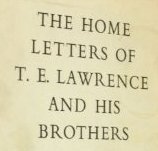 It seems he sincerely believed it to be true. For example, he was still convinced his parents were married when Richard Aldington’s biography (1955) proved this to be false. He roared with laughter the first time he was told by Mrs Kennington, rejecting the story since both his parents had been very decided Evangelical Christians. He held on very persistently to this belief, trusting his mother and what she had told him. Liddell Hart and Mrs Kennington spent hours trying to convince him that the revelation about his parents was true, and since this didn’t seem to help, it took a private note from his younger brother Arnold to make the difference. After accepting the truth, he tried to shield his mother from the news that Aldington had exposed the family secret. (Fred D. Crawford – Richard Aldington And Lawrence Of Arabia: A Cautionary Tale – Southern Illinois University Press, Carbondale 1998),p.130-131. Jack Duckworth Saving “Mum”: The Lawrence Bureau In Action 1954-1955, in: TE Notes 2 – 2001,p.26-27) According to TE, Bob was “queer company. You will not persuade him of anything if you do see him. He is illuminated from inside, not from out. His face, very often, shines like a lamp. Such an odd family.” (Letter to Charlotte Shaw, June/July 1928, in: John Mack – A Prince Of Our Disorder,p.14) When someone asked him what to read about his brother, he recommended Gurney Slade’s children’s adventure stories. (Letter Bob Lawrence to Helen Fitzrandolph 2-1-1937, in: Jack Duckworth – An Odd Family,p.18)
It seems he sincerely believed it to be true. For example, he was still convinced his parents were married when Richard Aldington’s biography (1955) proved this to be false. He roared with laughter the first time he was told by Mrs Kennington, rejecting the story since both his parents had been very decided Evangelical Christians. He held on very persistently to this belief, trusting his mother and what she had told him. Liddell Hart and Mrs Kennington spent hours trying to convince him that the revelation about his parents was true, and since this didn’t seem to help, it took a private note from his younger brother Arnold to make the difference. After accepting the truth, he tried to shield his mother from the news that Aldington had exposed the family secret. (Fred D. Crawford – Richard Aldington And Lawrence Of Arabia: A Cautionary Tale – Southern Illinois University Press, Carbondale 1998),p.130-131. Jack Duckworth Saving “Mum”: The Lawrence Bureau In Action 1954-1955, in: TE Notes 2 – 2001,p.26-27) According to TE, Bob was “queer company. You will not persuade him of anything if you do see him. He is illuminated from inside, not from out. His face, very often, shines like a lamp. Such an odd family.” (Letter to Charlotte Shaw, June/July 1928, in: John Mack – A Prince Of Our Disorder,p.14) When someone asked him what to read about his brother, he recommended Gurney Slade’s children’s adventure stories. (Letter Bob Lawrence to Helen Fitzrandolph 2-1-1937, in: Jack Duckworth – An Odd Family,p.18)
*8 Bob Lawrence in: T.E. Lawrence By His Friends,p.31
*9 Sarah Lawrence in: T.E. Lawrence By His Friends p.28
*10 “Mother remonstrated with him about something he had written and he replied that too much had been said about the glory of war and it was time men should know what it entailed in human misery and deeds to be ashamed of.” (Letter from Bob Lawrence to Stanhope Landick 21-4-1967, in: Letters From M.R. Lawrence To Stanhope Landick)
*11 Letter Arnold Lawrence to Sir Percy Cox 30-7-1936, quoted by Jack Duckworth, T.E Lawrence Whittier List 17-5-1999.
*12 Letter Eric Kennington to Liddell Hart 28-2-1954, and Letter Arnold Lawrence to Liddell Hart 21-6-1954, in: Fred D. Crawford – Richard Aldington And Lawrence Of Arabia,p.107
*13 Letter from Arnold Lawrence to Robert Graves, 15-6-1927, in: John Mack – A Prince Of Our Disorder,p.33
*14 Notes on a conversation between Jim Ede and Arnold Lawrence 1937, Kettle’s Yard (Cambridge). Arnold was usually rather reticent on the subject of TE’s childhood, mainly for reasons of privacy and to prevent further gossip. However, in interviews with Jim Ede (between 1935 and 1940) and John E. Mack (between 1965 and 1972) he was more open.
*15 Queries by Liddell Hart answered in writing by TE, April 1933, in: T.E. Lawrence To His Biographer Liddell Hart (Doubleday, New York 1963),p.51. As could be expected, his mother remembers differently. “It has often been said that he did not like being at school; he always took a keen interest in his work and was very happy. “ (T.E. Lawrence by his Friends,p.26)
*16 Letter to Richard Knowles 14-7-1927, in: J.M. Wilson – Lawrence Of Arabia: The Authorised Biography Of T.E. Lawrence (Heinemann, London 1989),p.41. “To friends who wondered aloud how he could endure the company of the barrack-room and its bareness TE might retort, almost fiercely, that he had gone back to his boyhood class and was at home.” (Comments and Corrections of TE on Liddell Hart’s typescript for his biography on TE, June/July 1933, in: T.E. Lawrence To His Biographer Liddell Hart,p.79)
*17 T.E. Lawrence – The Mint (Jonathan Cape, London 1973),p.154
*18 “He suffered during his school years from a constant fear of being punished by his teachers.” (John Mack – A Prince Of Our Disorder,p.23)
*19 A friend who knew him from when he was six described him as being “frightfully bossy: he used to order us about, but in a very nice way.” (Janet Laurie, in: John Mack – A Prince Of Our Disorder,p.21) And a schoolmaster who experienced TE when he was thirteen, said “He was evidently forming resolutions as to the conduct of life, for he had already begun to criticise his elders, an awkward and hindering habit in any youth.” (H.R. Hall, in: J.M. Wilson – Lawrence Of Arabia,p.25)
*20 “In the army an effort, more or less conscious, was made to persuade the recruit to surrender one half of his will. (…) It tried to make obedience an instinct, a mental reflex … It demanded a surrender, for the term of service, of reason and initiative; the making of each soldier, or rather of each subordinate, an empty harp through which the will of the commander in chief could blow.” (T.E. Lawrence – Seven Pillars Of Wisdom – Castle Hill Press, Fordingbridge 1997,p.600-601).
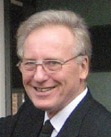 *21 TE’s circumcision is documented in the medical files of the RAF, dating from TE’s transfer back to the RAF in 1925. Thanks to Jeremy Wilson for bringing it to my attention. During the medical examination TE lied about his date of birth, mentioning 1894 and not the actual 1888. Lying to be considered younger in this situation, was understandable, because he desperately wanted to return to the RAF. It doesn’t mean automatically that he also lied about the age when he was circumcised. There is no information about whether TE’s brothers were ever circumcised.
*21 TE’s circumcision is documented in the medical files of the RAF, dating from TE’s transfer back to the RAF in 1925. Thanks to Jeremy Wilson for bringing it to my attention. During the medical examination TE lied about his date of birth, mentioning 1894 and not the actual 1888. Lying to be considered younger in this situation, was understandable, because he desperately wanted to return to the RAF. It doesn’t mean automatically that he also lied about the age when he was circumcised. There is no information about whether TE’s brothers were ever circumcised.
*22 T.E. Lawrence – Seven Pillars Of Wisdom (Jonathan Cape, London 1935),p.446. Elsewhere he says, “I’m always afraid of being hurt.” (Letter to Charlotte Shaw, 26-3-1924, in: Malcolm Brown (ed.) – The Letters Of T.E. Lawrence – J.M. Dent & Sons, London 1988,p.261) And according to his brother Arnold, “TE had a more than ordinary fear of pain.” (Letter Arnold Lawrence to Miss Early 17-12-1963, quoted by Harold Orlans in the manuscript of T.E. Lawrence: Biography Of A Broken Hero – McFarland, Jefferson 2002.)
*23 “Discipline, according to Arnold, was administered in the form of severe whippings on the buttocks and was delivered by his mother because his father was “too gentle, too imaginative – couldn’t bring himself to.” Arnold remembered receiving only one such beating himself. His mother once told him, “I never had to do it to Bob, once to Frank and frequently to TE.” (John Mack – A Prince Of Our Disorder,p.33)
*24 Eventually such a child becomes very good at being an “as-if-personality”, a chameleon, which seems to be the case with TE. For example, he described himself as being, “a sensitised film, turned black or white by the objects projected on me”. (Letter to Vyvyan Richards 15-7-1918, in: David Garnett (ed.) – The Letters Of T.E. Lawrence – Jonathan Cape, London 1938,p.245). If we consider his behaviour with the Arabs and in the armed forces, he was quite successful being “a “chameleon” who took on quite honestly the colour of his surroundings.” (Hugh Trenchard in conversation with Liddell Hart 27-6-1935, in: Harold Orlans – T.E. Lawrence,p.192) According to his brother Arnold, TE had a “facility for seeing through the eyes of others” (T.E. Lawrence By His Friends,p.591), which resulted in many people feeling perfectly at ease with him.
*25 Letter to Charlotte Shaw 8-12-1927, in: John Mack – A Prince Of Our Disorder,p.477n35
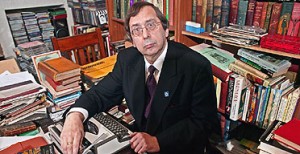 *26 James Walvin – A Child’s World: A Social History Of English Childhood, 1800-1914 (Penguin 1982),p.26. Thanks to Professor Jeffrey Richards (Cultural History, Lancaster University) for bringing this to my attention.
*26 James Walvin – A Child’s World: A Social History Of English Childhood, 1800-1914 (Penguin 1982),p.26. Thanks to Professor Jeffrey Richards (Cultural History, Lancaster University) for bringing this to my attention.
*27 T.E. Lawrence – Seven Pillars Of Wisdom (1935), p.468 “We had learned that there were pangs too sharp, grief’s too deep, ecstasies too high for our finite selves to register. When emotion reached this pitch the mind choked; and memory went white till the circumstances were humdrum once more.” (T.E. Lawrence – Seven Pillars Of Wisdom – 1935,p.29-30)
*28 T.E. Lawrence – Seven Pillars Of Wisdom (1935),p.445
*29 In the letters TE wrote as “The Old Man”, he often speaks of beatings as “schoolboy measures”. Therefore I definitely see a relation between his mother’s beatings and the later ones, particularly because there is no evidence of beatings in school.
*30 John Mack – A Prince Of Our Disorder,p.436
*31 T.E. Lawrence – Seven Pillars Of Wisdom (1997), p.539
*32 “In 1914 I was a pocket Hercules, as muscularly strong as people twice my size, & more enduring than most.” (Letter to Edward Marsh 10-6-1927, in: David Garnett – The Letters Of T.E. Lawrence,p.521)
*33 More about TE’s struggle for freedom and for control of his freezing response, in another article which will be published on this blog.
*34 Letter to Charlotte Shaw 26-3-1924, Malcolm Brown – The Letters Of T.E. Lawrence,p.261-2
*35 T.E. Lawrence – Seven Pillars Of Wisdom (1935),p.447
*36 Ernest Cox (assistant master at TE’s school in Oxford 1899-1903), in: T.E. Lawrence By His Friends,p.36. His hatred of rules may have been the reason why he took no interest in organised games, “because they were organised, because they had rules, because they had results. He will never compete – in anything.” (Amendments of TE to typescript of the Biography by Robert Graves, June 1927, in: T.E. Lawrence To His Biographer Robert Graves – Doubleday, New York 1963,p.61)
*37 Letter to Charlotte Shaw 8-5-1928, in: John Mack – A Prince Of Our Disorder,p.32
*38 “He … told us everything he was doing, or intending to do.” (T.E. Lawrence By His Friends,p.28)
*39 TE was suddenly confronted with the bath when he visited Robert Graves. His mother had given it to his friend. (John Mack – A Prince Of Our Disorder,p.15)
*40 Letter to Charlotte Shaw 14-4-1927, in: Malcolm Brown – The Letters Of T.E. Lawrence,p.324. “You talk of “sharing my life” in letters; but that I won’t allow. It is only my own business.” (Letter to Mother 28-12-1925, in: Malcolm Brown – The Letters Of T.E. Lawrence,p.298)
*41 Letter to Charlotte Shaw 14-4-1927, in: Malcolm Brown – The Letters Of T.E. Lawrence,p.325. “About 1922 or 1923 Lawrence told his brother Arnold of his parents’ legal inability to marry. Arnold laughed, and TE told him that his parents did not regard it at all as a laughing matter and thought he was “practically a pervert” for taking it lightly.” (Arnold Lawrence to John Mack – A Prince Of Our Disorder,p.477n1)
*42 According to a friend of TE, C.F. Bell, TE had worked out the story that the elder children (himself included) where fathered by a man of some position, in whose house his mother had been governess, and that his current “father” (“Mr Lawrence”) was in fact only the father of his younger brothers. (J.M. Wilson – Lawrence Of Arabia,p.29/30)
*43 Notes on a conversation between Jim Ede and Arnold Lawrence 1937, Kettle’s Yard (Cambridge).
*44 “There is only one pain greater than that of losing your mother, and that is for your mother to lose you – I do not mean by death but by your own misdeeds. Has it ever struck you what it means to your mother if you turn out a wrong ‘un or a waster? She who bore you as a baby, and brought you up … and was glad when you showed that you could do things. As she saw you getting bigger and stronger and growing clever she had hoped in her heart of hearts that you were going to make a successful career and to make a good name for yourself – something to be proud of. But if you begin to loaf about and do not show grit and keenness, if you become a slacker, her heart grows cold with disappointment and sorrow – all her loving work and expectation have been thrown away, and the pain she suffers through seeing you slide off into the wrong road is worse than if she had lost you in death… Make your career a success, whatever line you take up, and you will rejoice her heart. Try not to disappoint her but to make her happy in any way that you can; you owe it to her…” (Sir Robert Baden Powell – 1914, in: Tim Jeal – Baden-Powell – Hutchinson, London 1989,p.2)
*45 Letter to Eric Kennington 6-8-1934, in: David Garnett – The Letters Of T.E. Lawrence,p.813-4. As Janet Laurie observed, “there was always something he was not satisfied with, even as a small child”, something sad, “a secret something of unhappiness”, which inspired the feeling that she ought to take care of him or protect him.” (John Mack – A Prince Of Our Disorder,p.21)
*46 T.E. Lawrence – Seven Pillars Of Wisdom (1935),p.563
*47 Letter to Richard Knowles 14-7-1927, in: J.M. Wilson – Lawrence Of Arabia,p.41. The reasons for this sudden and unexpected change, will be dealt with in another article on this blog.
*48 How much our views on the up-bringing of children have changed over the years, is shown by the remarks of John B. Watson, the most authoritative expert on child-rearing in the late 1920’s, and considered to be progressive at that time. “The happy child? A child who never cries unless actually struck with a pin, illustratively speaking; who loses himself in work and play; who quickly learns to overcome the small difficulties in his environment without running to mother, father, nurse, or some other adult: who builds up a wealth of habits that tides him over dark and rainy days; who puts on such habits of politeness and neatness and cleanness that adults are willing to be around him, at least part of the day; a child who is willing to be around adults without fighting incessantly for notice; who eats what is set before him and “asks no questions for conscience’s sake”, who puts away two-year-old habits when the third year has to be faced; who passes into adolescence so well-equipped that adolescence is just a stretch of fertile years, and who finally enters manhood so bulwarked with stable work and emotional habits that no adversity can quite overwhelm him.” 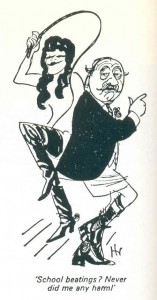 (From John B. Watson – Psychological Care Of The Infant And Child – 1928, quoted in: Thomas Maeder – Children Of Psychiatrists And Other Psychotherapists – Harper & Row, New York 1990,p.99.)
(From John B. Watson – Psychological Care Of The Infant And Child – 1928, quoted in: Thomas Maeder – Children Of Psychiatrists And Other Psychotherapists – Harper & Row, New York 1990,p.99.)
*49 English people in particular tend to think differently about beatings and their effects than other Europeans and Americans. Those who have themselves experienced beatings in school or at home, sometimes react in the line of “it never did me any harm”. In Britain, a law from 1851 gave parents the right to beat their children, provided that it was a reasonable chastisement. Until 1891, a husband was allowed to beat his wife with a stick, as long it was not thicker than his thumb. Judicial flogging was only abolished in 1948, while flogging for mutiny in prisons was retained until 1967. Corporal punishment was legally allowed in public schools until 1987. Sexual masochism with flagellation is still better known as “The English Vice”. Thus for English people, beatings seem to have been the norm rather than something barbaric or violent, as people from other countries usually consider it.
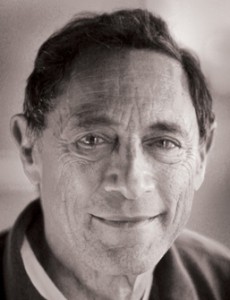 *50 Michael Korda, the latest biographer, uses the word “unfairly”. (Michael Korda – Hero: The Life And Legend Of Lawrence Of Arabia – Harper Collins, New York 2010,p.152)
*50 Michael Korda, the latest biographer, uses the word “unfairly”. (Michael Korda – Hero: The Life And Legend Of Lawrence Of Arabia – Harper Collins, New York 2010,p.152)
*51 “Developmental conflicts of childhood and adolescence, long since resolved, are suddenly reopened. Trauma forces the survivor to relive all his earlier struggles over autonomy, competence, identity and intimacy.” (Judith Herman – Trauma And Recovery – Harper Collins, New York 1997,p.52)
*52 Letter to Robert Graves 21-5-1921, in: T.E. Lawrence To His Biographer Robert Graves,p.15
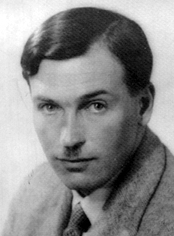 *53 “During his research, the more Mack learned about Lawrence’s mother, the more he came to realize that his own mother resembled her.” (TE Notes 2 – 2004,p.13)
*53 “During his research, the more Mack learned about Lawrence’s mother, the more he came to realize that his own mother resembled her.” (TE Notes 2 – 2004,p.13)
*54 Jesse May, Aldington’s mother, who was a writer like him, was “strong willed and turbulent”. She was a typical “will-to-power mother”, whom he actively disliked and even hated. (Letter from Henry Williamson to Kennington 5-6-1954, in: Fred D. Crawford The ‘Weather-Vane Soul’ of Henry Williamson, The Henry Williamson Society Journal 30 – 1994,p.15)
*55 Letter Charlotte Shaw to TE 17-5-1927, in: Janet Dunbar – Mrs GBS: A Biographical Portrait Of Charlotte Shaw (George Harrap, London 1963),p.281

